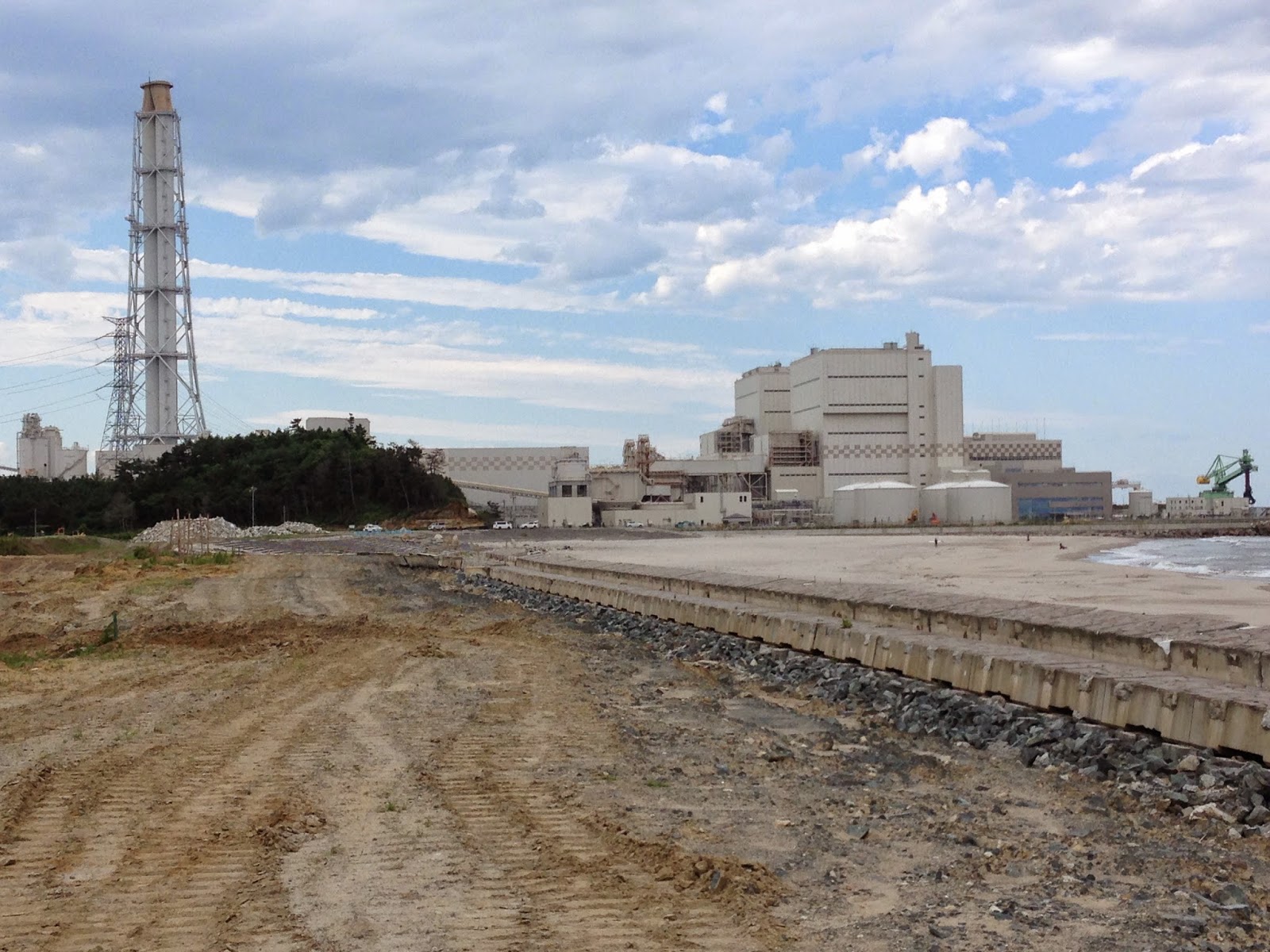
Governor of Fukushima, Yuhei Sato, called it “a bitter decision.” After getting consent from two local mayors, Sato announced his acceptance of an offer from national government to build an intermediate facility for solution of contaminated debris produced by exploded nuclear reactors in First Fukushima Nuclear Power Plant. He is going to tell it to Minister of Environment on Monday. The focus of this issue shifted to whether about two thousand landowners will agree with it. The governor and mayors vested their responsibility on ordinary people who lost peaceful lives in hometowns.
Sato had a meeting with mayors of Okuma town, Toshitsuna
Watanabe, and of Futaba town, Shiro Izawa, on Saturday. The broken nuclear
power plant is located on the border of those two towns. Watanabe expressed his
idea of accepting the intermediate facility in Okuma and Futaba, and two mayors
told, “We understand the governor’s idea.”
There is a huge amount of plastic bag all around Fukushima,
filled with contaminated soil produced after each family cleaned up the garden.
They need to be concentrated in one place and decontaminated to the extent it
may not harm people’s health. Since the national government could not determine
where that facility should be built, it has been persuading Fukushima to agree
with building an intermediate facility in Fukushima. The Governor and Mayors
accepted it in condition with building final solution facility outside
Fukushima.
But, there is an unspoken expectation of the national
government that Fukushima will accept the final facility, after spending a long
time of evacuation. Although people in Okuma and Futaba have been deeply
annoyed with the nightmare of finally losing their hometowns, which have been
inherited from their ancestors, the national government is looking forward them
to abandon it.
Pressure on local political leaders was too heavy to be
responsible for the decision. Some people have raised strong voices not to
accept the facility, while others become flexible during their ordinary lives
going on in other towns. So, the governor asked two mayors to accept it, and
the mayors recognized this problem should be solved by landowners.
Going back to the basic structure of this problem,
responsibility of cleaning the contaminated lands up is not on local governor
or mayors, but on the hand of owner of the reactors, Tokyo Electric Power
Company. It is the major contradiction of aftercare on the unprecedented
nuclear disaster that sufferers became responsible for the accident.
















